by Mike Geary - Certified Nutrition Specialist, Certified Personal Trainer
Author of best-selling program: The Truth about Six Pack Abs
In most of my Lean-Body Secrets Newsletters, I like to provide a healthy snack or meal recipe that not only is delicious and healthy, but also helps to get you closer to that hard-body appearance that everyone is looking for, while also more importantly, improving your health for life. In this article, I'd like to give you healthy food ideas in a different way. This time, I figured I'd just give you some ideas of what I stock my fridge and cabinets with.
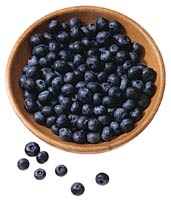 Remember, if you don't have junk around the house, you're less likely to eat junk! If
all you have is healthy nutritious foods around the house, you're
forced to make smart choices. Basically, it all starts with making smart
choices and avoiding temptations when you make your grocery store trip.
Now these are just some of my personal preferences, but perhaps they
will give you some good ideas that you'll enjoy.
Remember, if you don't have junk around the house, you're less likely to eat junk! If
all you have is healthy nutritious foods around the house, you're
forced to make smart choices. Basically, it all starts with making smart
choices and avoiding temptations when you make your grocery store trip.
Now these are just some of my personal preferences, but perhaps they
will give you some good ideas that you'll enjoy.
Some of these will be obvious healthy choices, such as fruits and veggies... however, others on this page I think will surprise you!
Alright, so let's start with the fridge. Each week, I try to make sure I'm loaded up with lots of varieties of fresh vegetables. During the growing season, I only get local produce, but obviously in winter, I have to resort to the produce at the grocery store. Most of the time, I make sure I have plenty of vegetables like onions, zucchini, spinach, fresh mushrooms, red peppers, broccoli, etc. to use in my morning eggs. I also like to chop up some lean chicken or turkey sausage (make sure to look for nitrate & nitrite free) or grass-fed bison sausage into the eggs, along with some swiss, jack, or goat cheeses (preferably raw grass-fed cheeses when I can find them).
By the way I'm talking about whole eggs, NOT egg whites. Always remember that the yolk is the most nutritious and nutrient dense part of the egg, so only eating egg whites is like throwing away the best part... and no, it's NOT bad for you because of the cholesterol... whole eggs actually raise your GOOD cholesterol. Try to get free range organic eggs for the best quality. Here's an entire article I did on the topic of whole eggs vs egg whites.
Coconut milk is another staple in my fridge. I like to use it to mix in with smoothies, oatmeal, or yogurt for a rich, creamy taste. Not only does coconut milk add a rich, creamy taste to lots of dishes, but it's also full of healthy saturated fats. Yes, you heard me right... I said healthy saturated fats! ...Healthy saturated fats such as medium chain triglycerides (MCTs), specifically an MCT called lauric acid, which is vitally important for your immune system.
If the idea of healthy saturated fats is foreign to you, check out my article about why saturated fat is not as bad as you think.
Back to the fridge, some other staples:
Well, I hope you enjoyed this special look into my favorite lean body meals and how I stock my cabinets and fridge. Your tastes are probably quite different than mine, but hopefully this gave you some good ideas you can use next time you're at the grocery store looking to stock up a healthy and delicious pile of groceries.
If you liked this article feel free to share with your friends and family.
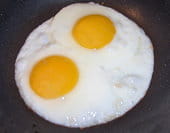 5 Foods that FIGHT Abdominal Fat
5 Foods that FIGHT Abdominal Fat

Author of best-selling program: The Truth about Six Pack Abs
In most of my Lean-Body Secrets Newsletters, I like to provide a healthy snack or meal recipe that not only is delicious and healthy, but also helps to get you closer to that hard-body appearance that everyone is looking for, while also more importantly, improving your health for life. In this article, I'd like to give you healthy food ideas in a different way. This time, I figured I'd just give you some ideas of what I stock my fridge and cabinets with.
 Remember, if you don't have junk around the house, you're less likely to eat junk! If
all you have is healthy nutritious foods around the house, you're
forced to make smart choices. Basically, it all starts with making smart
choices and avoiding temptations when you make your grocery store trip.
Now these are just some of my personal preferences, but perhaps they
will give you some good ideas that you'll enjoy.
Remember, if you don't have junk around the house, you're less likely to eat junk! If
all you have is healthy nutritious foods around the house, you're
forced to make smart choices. Basically, it all starts with making smart
choices and avoiding temptations when you make your grocery store trip.
Now these are just some of my personal preferences, but perhaps they
will give you some good ideas that you'll enjoy.Some of these will be obvious healthy choices, such as fruits and veggies... however, others on this page I think will surprise you!
Alright, so let's start with the fridge. Each week, I try to make sure I'm loaded up with lots of varieties of fresh vegetables. During the growing season, I only get local produce, but obviously in winter, I have to resort to the produce at the grocery store. Most of the time, I make sure I have plenty of vegetables like onions, zucchini, spinach, fresh mushrooms, red peppers, broccoli, etc. to use in my morning eggs. I also like to chop up some lean chicken or turkey sausage (make sure to look for nitrate & nitrite free) or grass-fed bison sausage into the eggs, along with some swiss, jack, or goat cheeses (preferably raw grass-fed cheeses when I can find them).
By the way I'm talking about whole eggs, NOT egg whites. Always remember that the yolk is the most nutritious and nutrient dense part of the egg, so only eating egg whites is like throwing away the best part... and no, it's NOT bad for you because of the cholesterol... whole eggs actually raise your GOOD cholesterol. Try to get free range organic eggs for the best quality. Here's an entire article I did on the topic of whole eggs vs egg whites.
Coconut milk is another staple in my fridge. I like to use it to mix in with smoothies, oatmeal, or yogurt for a rich, creamy taste. Not only does coconut milk add a rich, creamy taste to lots of dishes, but it's also full of healthy saturated fats. Yes, you heard me right... I said healthy saturated fats! ...Healthy saturated fats such as medium chain triglycerides (MCTs), specifically an MCT called lauric acid, which is vitally important for your immune system.
If the idea of healthy saturated fats is foreign to you, check out my article about why saturated fat is not as bad as you think.
Back to the fridge, some other staples:
- Walnuts, pecans, almonds - delicious and great sources of healthy fats. Try to get raw nuts if possible as the roasting process can oxidize some of the polyunsaturated fats in some types of nuts making those damaged fats slightly more inflammatory. Overall, nuts are still healthy even if they are roasted, but raw nuts are optimal.
- Cottage cheese, ricotta cheese, and yogurt (grass-fed and organic if possible) - I like to mix cottage or ricotta cheese and yogurt together with chopped nuts and berries for a great mid-morning or mid-afternoon meal.
- Chia seeds and/or hemp seeds - I add these highly nutritious seeds to yogurt, smoothies, or salads for a great nutty taste and loads of omega-3 fatty acids and vitamins and minerals. Don't use pre-ground versions of these seeds as the omega-3 polyunsaturated fats are highly unstable and prone to oxidation, creating high levels of free radicals if you use pre-ground seeds. No grinding is necessary to properly digest these seeds.
- Whole eggs - one of natures richest sources of nutrients (and remember, they increase your GOOD cholesterol so stop fearing them).
- Salsa - I try to get creative and try some of the exotic varieties of salsas.
- Avocados - love them...plus a great source of healthy fats, fiber, and other nutrients. Try adding them to wraps, salads, or sandwiches.
- Butter - don't believe the naysayers; butter adds great flavor to anything and CAN be part of a healthy diet... just keep the quantity small because it is calorie dense... and NEVER use margarine, unless you want to assure yourself a heart attack. Most important -- choose organic butter only, since pesticides and other harmful chemicals accumulate in the fat of the milk which is used for butter, so choosing organic helps avoid this problem. Also, choose grass-fed (pastured) butter if you can find it as it will contain higher levels of healthful omega-3 fats and the fat-burning conjugated linoleic acid (CLA).
- Nut butters - Plain old peanut butter has gotten a little old for me, so I get creative and mix together almond butter with pecan butter, or even cashew butter with macadamia butter...delicious and unbeatable nutrition! Using a variety of nut butters gives you a broader range of vitamins and minerals and other micronutrients, and gives you variety instead of boring old peanut butter all the time.
- Leaf lettuce and spinach along with shredded carrots - for salads with dinner.
- Home-made salad dressing - using balsamic vinegar, spices, extra virgin olive oil, and Udo's Choice oil blend. This is much better than store bought salad dressing which mostly use highly refined canola or soybean oil (canola and soybean oil are both very inflammatory in the body). Here's an article showing why to NEVER use store-bought salad dressings.
- Sprouted grain bread for occasional use -- My personal belief from years of nutrition research is that we're not really meant to consume the massive quantities of grains (not even whole grains) that we do in this day and age... a small amount may be okay, but our digestive systems are still primarily adapted to a hunter/gatherer type of diet with only a very small amount of grains, therefore I try to only have breads and other grain-based foods on cheat days.
- Rice bran - If we're going to have some grain-based food, we might as well have the most nutrient dense part, and rice bran is one of those parts, since it includes the germ of brown rice too. Rice bran is loaded with vitamins and minerals but without the large amount of starch calories that rice has... and it actually adds a nice little nutty, crunchy taste to yogurt or smoothies, or can be added when baking to add nutrients and fiber to the recipe.
- Frozen berries - during the local growing season, I only get fresh berries, but during the other 10 months of the year, I always keep a supply of frozen blueberries, raspberries, blackberries, strawberries, cherries, etc. to add to high fiber cereal, oatmeal, cottage cheese, yogurt, or smoothies. I also get frozen goji berries sometimes for a little "exotic" variety.
- Frozen fish - I like to try a couple different kinds of fish each week. There are so many varieties out there, you never have to get bored. Just make sure to ALWAYS choose wild fish instead of farmed versions, as the omega-3 to omega-6 balance is MUCH healthier in wild fish.
- Frozen chicken breasts - very convenient for a quick addition to wraps or chicken sandwiches for quick meals.
- Grass-fed steaks, burgers, and ground beef: Grass-fed meats have been shown to have as high as, or even higher levels of omega-3 fatty acids than salmon (without the mercury). Also, grass-fed meats have much higher levels of fat-burning and muscle-building conjugated linoleic acid (CLA) compared to typical grain-fed beef that you'll find at your grocery store. I recently found an excellent on-line store where I buy all of my grass-fed meats now (they even deliver right to your door in a sealed cooler) - www.healthygrassfed.2ya.com
- Frozen buffalo, ostrich, venison, and other "exotic" lean meats - Yeah, I know...I'm weird, but I can tell you that these are some of the healthiest meats around, and if you're serious about a lean healthy body, these types of meats are much better for you than the mass produced, hormone-pumped beef, chicken, and pork that's sold at most grocery stores.
- Frozen veggies - again, when the growing season is over and I can no longer get local fresh produce, frozen veggies are the best option, since they often have higher nutrient contents compared to the fresh produce that has been shipped thousands of miles, sitting around for weeks before making it to your dinner table.
- Various antioxidant-rich teas - green, oolong, white, rooibos (red tea) are some of the healthiest. One of my newest favorite teas is yerba mate, which is a south american tea that is loaded with antioxidants and other nutrients. I've found some delicious yerba mate mixes such as chocolate yerba mate, mint mate, raspberry mate, etc.
- Oat bran and steel cut oats - higher fiber than those little packs of instant oats, which are typically loaded with sugar. If I'm trying to reduce body fat and get extra lean, I make most of my breakfasts based on eggs and veggies and bison sausage, but if I'm on a muscle building phase, I increase carbohydrate intake and use more oat bran and oatmeal.
- The only healthy oils I have in my cabinets are virgin coconut oil and extra virgin olive oil. Macadamia oil may also be a reasonable choice as long as it's not "refined". But other than that, all "vegetable oils" (which is usually soy and corn oil) are total junk and very inflammatory. Never use soy or corn oils! Also, always avoid canola oil, as there is nothing healthy about canola oil, despite the deceptive marketing claims by the canola oil industry.
- Cans of coconut milk (loaded with healthy saturated MCT fats) - to be transferred to a container in the fridge after opening.
- Brown rice and other higher fiber rice - NEVER white rice
- Tomato sauces - delicious, and as I'm sure you've heard a million times, they are a great source of lycopene. Just watch out for the brands that are loaded with nasty high fructose corn syrup. You also want to make sure that the tomato sauce is made with olive oil instead of unhealthy soybean oil or canola oils. Also get tomato sauces in glass jars instead of cans, as canned tomatoes are notoriously high in the dangerous chemical, bisphenol-A (BPA) due to the acidic leaching of BPA from the can lining.
- Stevia - a natural non-caloric sweetener, which is an excellent alternative to the nasty chemical-laden artificial sweeteners like aspartame, saccharine, and sucralose.
- Raw honey - better than processed honey... higher quantities of beneficial nutrients and enzymes. Honey has even been proven in studies to improve glucose metabolism (your efficiency in processing carbohydrates). I use a small teaspoon every morning in my teas. Yes, I know that even honey is pure sugar, but at least it has some nutritional benefits... and let's be real, a teaspoon of healthier raw honey is only 5 grams of carbs... certainly nothing to worry about, and a better choice than refined sugar.
- Organic REAL maple syrup - none of that high fructose corn syrup Aunt Jemima crap...only real maple syrup can be considered real food. The only time I really use this (because of the high sugar load) is added to my post-workout smoothies to sweeten things up and also elicit an insulin surge to push nutrients into your muscles to aid muscle recovery.
- Organic unsweetened cocoa powder - I like to mix this into my smoothies for an extra jolt of antioxidants or make my own low-sugar hot cocoa by mixing cocoa powder into hot milk with stevia and a couple melted dark chocolate chunks (delicious!).
- Cans of black or kidney beans - I like to add a couple scoops to my Mexican dishes for the fiber and high nutrition content. Also, beans are surprisingly one of the best sources of youth enhancing antioxidants! Did you know that black beans and kidney beans have more antioxidants than blueberries...it's true!
- Dark chocolate (as dark as possible - ideally more than 70-75% cocoa content) - This is one of my treats that satisfies my sweet tooth, plus provides loads of antioxidants at the same time. It's still calorie dense, so I keep it to just 1-2 small squares after a meal... but that is enough to do the trick, so I don't feel like I need to go out and get cake and ice cream to satisfy my dessert urges.
Well, I hope you enjoyed this special look into my favorite lean body meals and how I stock my cabinets and fridge. Your tastes are probably quite different than mine, but hopefully this gave you some good ideas you can use next time you're at the grocery store looking to stock up a healthy and delicious pile of groceries.
If you liked this article feel free to share with your friends and family.
 5 Foods that FIGHT Abdominal Fat
5 Foods that FIGHT Abdominal Fat





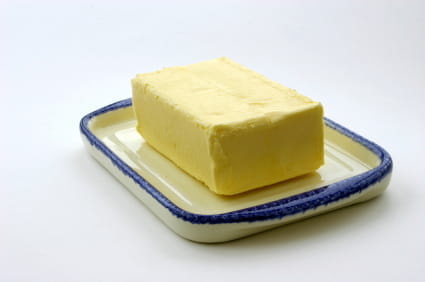
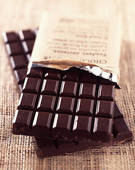
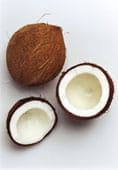

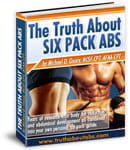 I hope this article has shed some light on the truth about dietary fats and made you realize their importance in a healthy diet.
I hope this article has shed some light on the truth about dietary fats and made you realize their importance in a healthy diet. ...
the article was VERY well researched and put together beautifully to
summarize where the studies in the past have gone wrong, and why recent
studies are showing that everyone may have been wrong for the last 5
decades about saturated fat.
...
the article was VERY well researched and put together beautifully to
summarize where the studies in the past have gone wrong, and why recent
studies are showing that everyone may have been wrong for the last 5
decades about saturated fat.




